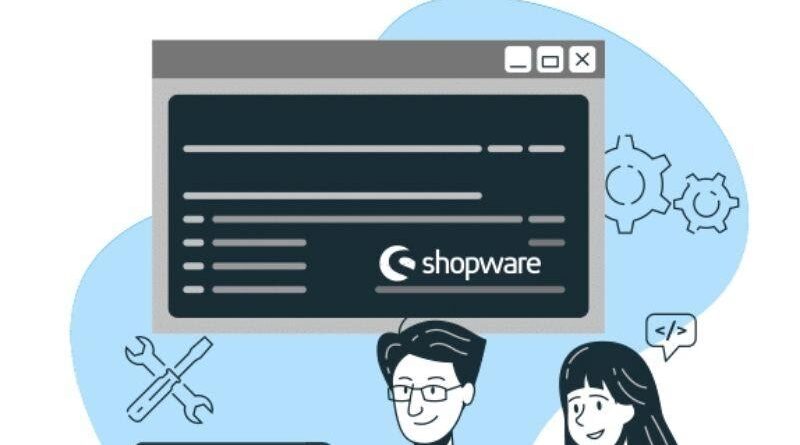Guidelines for Your Shopware Plugin Development
The eCommerce industry is booming, and if you have products or services to offer, this is the best time to sell.
Also, selling online has become easy nowadays due to technology. You need to start your eCommerce website and start selling products.
However, it is not as easy as it seems. You need to have a robust, secure, scalable, and feature-rich eCommerce website with the best, attractive user interface and offer the visitors the best user experience.
To develop a highly scalable and attractive website, you need to choose the eCommerce platform first. You have many options such as Magento, WooCommerce, Shopify, BigCommerce, Weebly, and others.
However, in recent times, Shopware has been in trend due to some unmatched features and benefits the eCommerce platform offers. The latest Shopware 6 is a highly advanced, innovative, and full-featured eCommerce platform that can answer all your questions.
Shopware development is easy and effortless and offers multiple benefits to developers. All you need to do is to hire a Shopware development company, and that is all.
The Shopware 6 is entirely different from its previous versions. It has the new architecture and completely rewritten code. Furthermore, it is an open-source and free-to-use eCommerce platform. It is also licensed under the MIT license.
Apart from that, you can also go for Shopware plugin development to add extra features and functionalities to your Shopware store.
If you want to develop plugins for Shopware 6, this guide is for you. We have discussed some basic guidelines that might help the Shopware developer to develop high-quality Shopware 6 plugins. This guide will save your time and make the development process more simple and save your development headaches.
Name Your Plugins Properly
The first thing that you need to do is to namesake your plugins. How to name your plugins in composer.json?
Plugins: vendor/plugin-some-name
Themes: vendor/theme-some-time
This is the best way to name your plugins. Here, the vendor is the name of your company or your name. Next, you need to name your plugin or theme so that you can easily distinguish between them. Last, you need to name the plugin you have developed.
Experts recommend naming all plugins, themes in English to remember and brand appropriately. Even if your plugins don’t have an English language version, name them in English.
Furthermore, ensure that the plugin name does not contain any special characters. Ensure that the plugin name begins with an uppercase letter.
In addition to that, ensure that the directory where your plugin resides is named the same as the plugin.
Simplifying the naming process is to find and sort any plugin quickly. Shopware will save this value in the spreadsheet from composer.json file to the table named plugin and column called composer_name.
Ensure That Your Plugin Works Only When it is Activated
You need to make sure of it. Whether you have developed a plugin for multiple stores or one particular Shopware eCommerce store, it must work only when activated.
How to achieve it? The best solution is to ensure that all your code is within your plugin’s directory.
Keeping your plugin logic separated is very crucial. When your plugin does not work or is deactivated for some reason, such as debugging or others, you can activate it as and when you permit. Also, if someone wants to edit your code, he/she can do it within your plugin’s directory.
In addition to that, also ensure that your plugin is dependent on everything that is outside. If you have to accommodate something, it is essential to mark it in the composer.json file of that plugin so that Shopware knows about it.
Furthermore, you also need to add a conditionality in the parts of your plugin that are problematic. Parts that expect your plugin to be active must be conditioned. This conditionality will be applied only when your plugin is activated.
For example, if you edit your theme’s template directly to output custom stuff, you will find errors. The best way is to add an empty block to your theme’s template and let it override within your plugin. In case your plugin is turned off, nothing will happen.
Also Read: Mac Spy and Monitoring Software Ogymogy Review
Ensure the portability of your plugin
What does it mean?
It simply means that you can install your plugin on any instance of Shopware 6 without any manual intervention or adjustments to the Shopware eCommerce store itself.
You should copy the plugin into the custom/plugins directory, install and activate it.
When you install and activate the plugin, ensure that all installation procedures are implemented and processed automatically.
Why is it important? For example, if you want to use your plugin on a different store, it can be possible with this plugin’s portability. You don’t have to do any other things to install and activate the plugin.
Create documentation for your plugin
It is seen that a Shopware developer, more often than not, doesn’t consider technical documentation necessary. It is not a good practice.
When you look at someone’s code, you must comprehend what the author has tried to achieve with code. With the technical documentation for your plugin, it saves time and effort for a person.
Conclusion
That is all. When it comes to Shopware Plugin Development, these things you need to take while developing plugins. These are the best practices to be followed when it comes to Shopware plugin development. Plugins are essential for any Shopware store.
All you need to do is to hire the best Shopware developer with adequate experience and expertise and let him take care of everything from developing, installing, and activating plugins.



